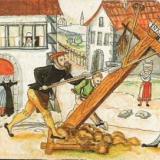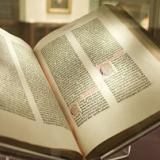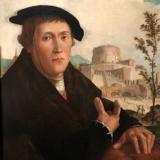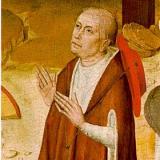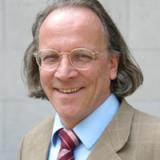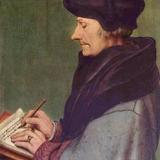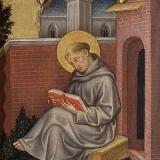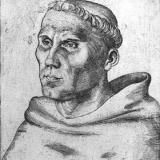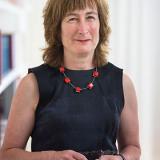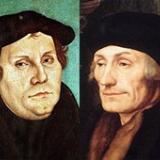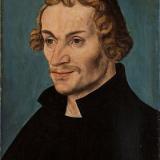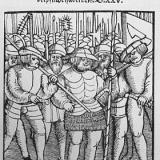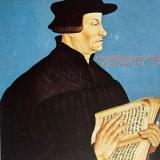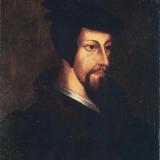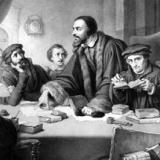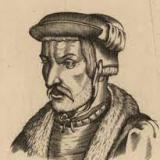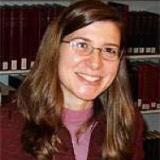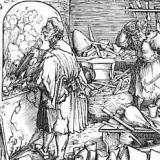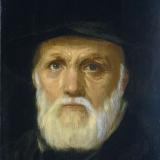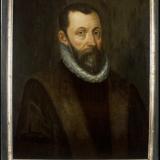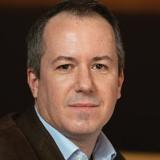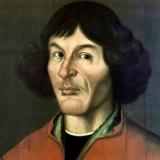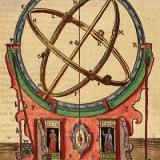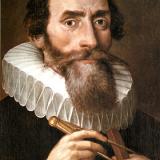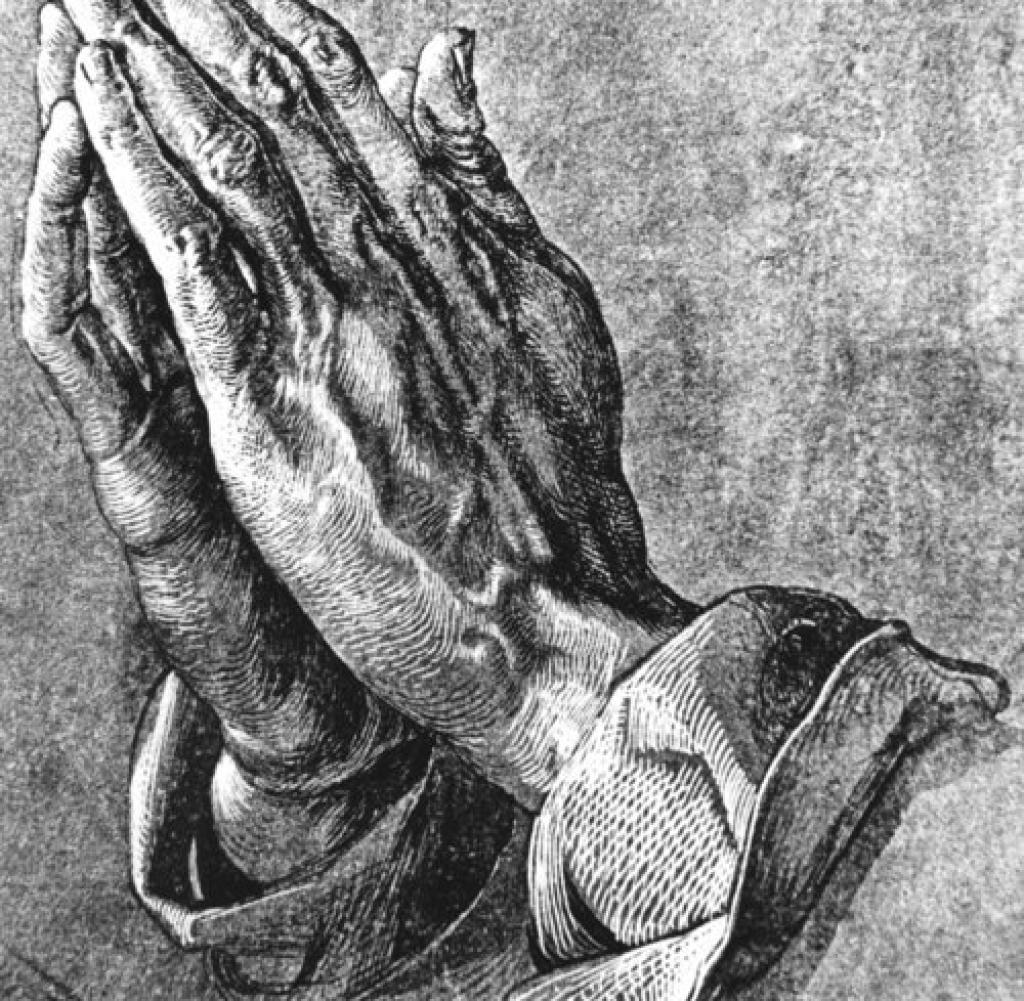Renaissance and Reformation in Central Europe
We continue our coverage of philosophy in the 15th and 16th centuries, looking beyond the Italian Renaissance to explore the Northern Renaissance and the shattering events of the Reformation, which radically changed political and cultural life in Europe, including for philosophers. In this first batch of episodes we look at the Low Countries and Germany, with occasional forays further East (including, at one point, Croatia!). We examine the phenomenon of northern humanism, with special attention to Erasmus and Nicholas of Cusa, and the way that humanism fed into the thought of Reformation figures like Luther, Melanchthon, and Calvin. Another major theme in this season is the political impact of the Reformation, including the peasants' revolt and debates over religious tolerance. Lipsius' revival of Stoicism can also be understood, in part, as a reaction to the religious upheaval and violence in his native land. Finally, we look at numerous topics in science, especially Paracelsus' new chemical and medical theories and the sequence of innovators in astronomy that concludes the season: Copernicus, Brahe, and Kepler.
Along the way we're joined by several wonderful interview guests: Paul Blum, Lorraine Daston, Helen Hattab, Lyndal Roper, and John Sellars.
• K.G. Appold and N. Minnich (eds), The Cambridge History of Reformation Era Theology (Cambridge: 2023).
• J. Bossy, Christianity in the West: 1400-1700 (Oxford: 1985).
• M.A. Gillespie, The Theological Origins of Modernity (Chicago: 2008).
• C. Kooi, Reformation in the Low Countries, 1500-1620 (Cambridge: 2022).
• C. Lindberg, The Reformation Theologians: An Introduction to the Theology of the Early Modern Period (Oxford: 2002).
• M. Massing, Fatal Discord: Erasmus, Luther, and the Fight for the Western Mind (New York: 2018).
• H.A. Oberman, Harvest of Medieval Theology: Gabriel Biel and Late Medieval Nominalism (Cambridge MA: 1963).
• J.H. Overfeld, Humanism and Scholasticism in Late Medieval Germany (Princeton: 1984).
• J.H. Overfeld, Protestantism: the Birth of a Revolution (New York: 1992).
• G. Remer, Humanism and the Rhetoric of Toleration (University Park: 1996).
• E. Rummel, The Humanist-Scholastic Debate in the Renaissance and Reformation (Cambridge MA: 1995).
• L.W. Spitz, The Protestant Reformation 1517-1559 (New York: 1986).
Posted on
How humanism and scholasticism came together with the Protestant Reformation to create the philosophy of 15 - 16th century Europe.
Posted on
The impact of the printing press on the history of philosophy, and its role in helping to trigger the Reformation.
Posted on
Rudolph Agricola, Juan Luis Vives and other humanist scholars spread the study of classical antiquity across Europe and mock the technicalities of scholastic philosophy.
Posted on
The radical negative theology of Nicholas of Cusa, and his hope of establishing peace between the religions of the world.
Posted on
Learned ignorance, coincidence of opposites and religious peace: Paul Richard Blum discusses the central ideas of Nicholas Cusanus.
Posted on
The “learned piety” of Desiderius Erasmus, the greatest figure of northern humanism.
Posted on
Trends in Aristotelian philosophy in northern and eastern Europe in the fifteenth century, featuring discussion of the “Wegestreit” and the nominalist theology of Gabriel Biel.
Posted on
How Luther’s doctrine of justification by faith alone and his attack on the Church relate to the history of philosophy.
Posted on
How radical was Luther? We find out from Lyndal Roper, who also discusses Luther and the Peasants' War, sexuality, anti-semitism, and the visual arts.
Posted on
Erasmus clashes with Martin Luther over the question whether our wills are free or enslaved to sin.
Posted on
Luther’s close ally Melanchthon uses his knowledge of ancient philosophy and rhetoric in the service of the Reformation.
Posted on
Faced with massive political upheaval and the rise of the Anabaptists, Luther argues for a socially conservative version of the Reformation.
Posted on
The Swiss theologian Zwingli launches the Reformation in Switzerland, but clashes with Luther and more radical Protestants.
Posted on
John Calvin's views on predestination and the limits of human reason.
Posted on
In a surprise twist, some Protestant thinkers embrace the methods of scholasticism, and even find something to admire in the work of Catholic authors like Aquinas.
Posted on
Was Heinrich Cornelius Agrippa a dark magician, a pious skeptic, or both?
Posted on
An interview with Helen Hattab on the scope and impact of scholastic philosophy among Protestants.
Posted on
Paracelsus adapts the tradition of alchemical science for use in medicine, and in the process overturns the scientific theories of Aristotle and Galen.
Posted on
Schegk, Taurellus, Gorlaeus, and Sennert revive atomism to explain chemical reactions, the composition of bodies, and the generation of organisms.
Posted on
Amidst religious conflict in the Netherlands, Dirck Coornhert pleads for religious toleration and freedom of expression.
Posted on
Justus Lipsius draws on Seneca and other Stoics to counsel peace of mind in the face of political chaos, but also writes a work on how such chaos can be avoided.
Posted on
John Sellars returns to the podcast to discuss Lipsius' work on Seneca and the early modern Neo-Stoic movement.
Posted on
How revolutionary was the Copernican Revolution?
Posted on
Responses to Copernicus in the 16th century, culminating with the master of astral observation Tycho Brahe.
Posted on
Kepler combines Brahe's observations, Copernicus' astronomy, and Platonist metaphysics.
Posted on
Comets! Magnets! Armadillos! In this wide-ranging interview Lorraine Daston tells us how Renaissance and early modern scientists dealt with the extraordinary events they called "wonders".




